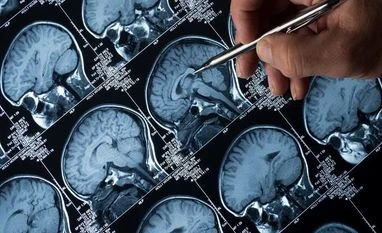But a new study by a team that includes prominent Alzheimer’s scientists who were previously skeptics of this theory may well change that. The research offers compelling evidence for the idea that viruses might be involved in Alzheimer’s, particularly two types of herpes that infect most people as infants and then lie dormant for years.
The study, published Thursday in the journal Neuron, found that viruses interact with genes linked to Alzheimer’s and may play a role in how Alzheimer’s develops and progresses.
The authors emphasised they did not find that these viruses cause Alzheimer’s. But their research, along with another soon-to-be-published study, suggests that viruses could kick-start an immune response that might increase the accumulation of amyloid, a protein in human brains which clumps into the telltale plaques of Alzheimer’s.
“These viruses are probably significant players in driving the immune system in Alzheimer’s,” said Joel Dudley, the study’s senior author and an associate professor of genetics and genomic sciences at the Icahn School of Medicine at Mount Sinai in New York. “I think they’re like gas on the flames of some pathology that may be immune-driven.” If so, that could change the course of research and possibly lead to treatments and new ways of screening for the disease.
“This definitely brings up the potential role of infection or infectious particles in the pathology of Alzheimer’s,” said John Morris, director of the Knight Alzheimer’s Disease Research Center at Washington University School of Medicine in St. Louis. Morris, who was not involved in the research, said it provided the strongest evidence to date for a viral role. The study analysed samples from nearly 950 human brains in four different brain banks and found links to the genetic, molecular and clinical symptoms of Alzheimer’s.
“It’s a very complex disease, and the answer’s not going to be one thing,” he said. “If viruses are a part of that, we definitely need to take a look at it.”
The virus theory is far from being accepted by most Alzheimer’s experts. Some raise the chicken-or-egg question: Could viruses found in greater amounts in Alzheimer’s brains be consequences of the disease or even, as Lennart Mucke, director of the Gladstone Institute of Neurological Disease in San Francisco said, “innocent bystanders”?
Mucke called the new study “impressive and very well designed.” But, he noted, “there have been many speculations and even outright claims that infections contribute to the development of Alzheimer’s disease.”
“None of them has held up after rigorous cause-effect evaluations,” he added.
Still, the new findings will be bolstered by another upcoming study in Neuron, led by Rudolph Tanzi and Robert Moir, neuroscientists at Massachusetts General Hospital and Harvard, who have broken ground on the virus idea for years.
Their new experiments, performed in mice and three-dimensional brain cells in a dish, found that the same herpes species ignited a protective reaction in amyloid, a protein present in all human brains. Tanzi describes this as “seeding” the amyloid, causing it to ensnare the virus in fibrous nets that form plaques.
To read the full story, Subscribe Now at just Rs 249 a month
Already a subscriber? Log in
Subscribe To BS Premium
₹249
Renews automatically
₹1699₹1999
Opt for auto renewal and save Rs. 300 Renews automatically
₹1999
What you get on BS Premium?
-
Unlock 30+ premium stories daily hand-picked by our editors, across devices on browser and app.
-
Pick your 5 favourite companies, get a daily email with all news updates on them.
Full access to our intuitive epaper - clip, save, share articles from any device; newspaper archives from 2006.
Preferential invites to Business Standard events.
Curated newsletters on markets, personal finance, policy & politics, start-ups, technology, and more.
Need More Information - write to us at assist@bsmail.in
)